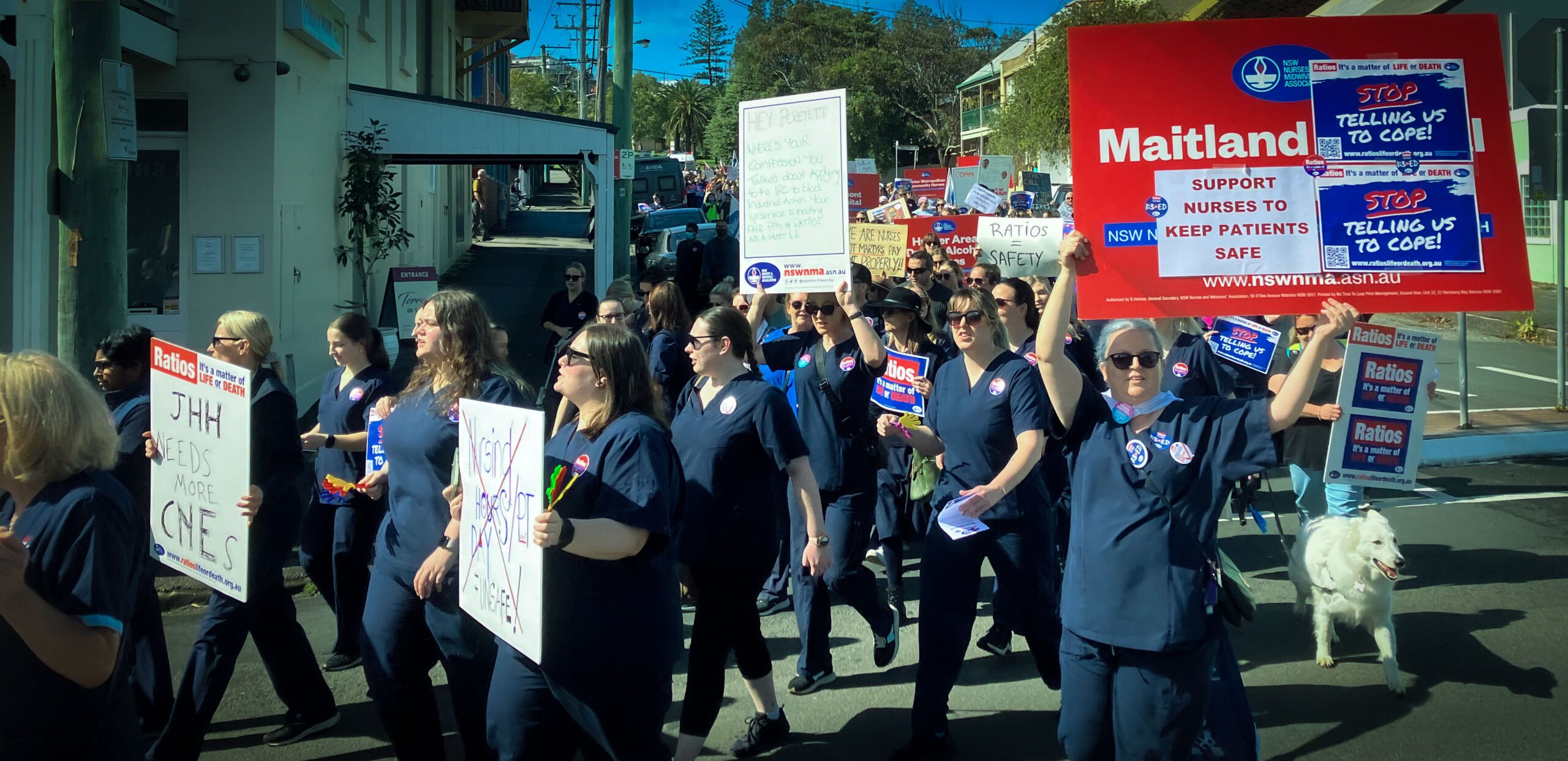How the O’Farrell Government’s new workers compensation law will affect workers now.
For a summary of the changes, click here.
What happens if you already receive weekly payments?
- If you already receive weekly payments, the insurer must conduct a work capacity assessment of you in the 12 months following proclamation* of the new legislation (although they can conduct the assessment before proclamation*).
- The new system will then apply to you 3 months after the date of the work capacity assessment.
- The new system has a different way of calculating your weekly benefit. Once you are put on the new system, this different calculation will be used. The calculation is based on “pre-injury average weekly earnings”. For everyone already on weekly payments, their “pre-injury average weekly earnings” is defined as $906.25. You will be entitled to 95% of this amount for the first 13 weeks, then 80% of this amount thereafter. Injured workers working at least 15 hours a week will continue to receive 95% after week 14.
- If the work capacity assessment reveals you can work your former hours, either for your current employer or a different employer, payments may be terminated. No consideration is given to actual availability of work. The soonest this could happen is 3 months after the work capacity assessment.
- If the work capacity assessment reveals you have some incapacity, you will be entitled to weekly payments up to 130 weeks. However, the length of time you have already received weekly payments under the old system will count towards the 130 week cap for weekly payments.
Example: If you are assessed as only entitled to weekly payments for 130 weeks under the new system, but you have already been on weekly payments for 3 years, your weekly payments will be terminated 3 months after the work capacity assessment.
- If the work capacity assessment reveals you have no work capacity or you are working more than 15 hours a week but are incapable of extra employment, you may be entitled to weekly payments beyond 130 weeks and up to 5 years. In this case, the length of time you have already received weekly payments under the old system does not count towards the cap for weekly payments.
Example: If you are assessed as entitled to weekly payments up to 5 years under the new system and you have already been on weekly payments for 3 years, the timeline starts again and you can receive up to 5 years of weekly payments.
- If you have 20% Whole Person Impairment (WPI) you can continue to receive weekly payments after 5 years.
- Someone with 30% WPI will receive weekly payments under the new system as soon as the legislation receives assent** and will not generally need to undergo a work capacity assessment.
- If you are receiving Section 38 payments under the old system, you can continue to receive those payments for the remainder of the Section 38 period under the old Act.
What is happening with Medical expenses?
Medical and other treatment expenses are capped and will only be paid for a period of up to 12 months after you are injured or stop receiving weekly payments, whichever is longer. This means if your weekly payments are terminated 3 months after your work capacity assessment, the earliest your medical expenses will stop being paid is 12 months after that.
What happens if you have a new claim?
If you are injured at work after the new legislation is proclaimed*, your entitlement to weekly payments will be determined under the new system.
What happens if you have a Journey Claim?
If your journey happened before 19 June 2012 you will be covered. If your journey happened on or after 19 June 2012 you may not be covered. To be covered there must be a real and substantial connection between the employment and the accident or incident out of which the personal injury arose.
Journey claims may be subject to testing in the courts so contact your union to get advice about whether your journey claim fits this definition.
What happens if you have a claim arising out of a heart attack, stroke or disease?
If your heart attack, stroke or disease injury happened before 19 June 2012 you will be covered.
If your heart attack, stroke or disease injury happened on or after 19 June 2012 you may not be covered as definitions have changed. Contact your union to get advice about whether your injury fits the new definitions.
What happens if you have a claim for nervous shock?
If the harm that gave rise to your claim for nervous shock happened before 19 June 2012 you will only be covered if you have commenced court proceedings before 19 June 2012.
What happens if you have a claim before the Workers Compensation Commission?
The new system includes changes about the way costs are paid to lawyers. If you began proceedings in the Workers Compensation Commission before the new legislation received assent**, costs for those proceedings will be calculated under the old system.
What happens if you are a police officer, coal miner, paramedic, firefighter or someone covered by the Workers Compensation (Bush Fire, Emergency and Rescue Services) Act 1987?
If you are one of these workers, you continue to be covered by the old system.
What happens if you want to make a claim for lump sum compensation?
If your injury happened before 19 June 2012 you will be covered by the old system.
If your injury happened on or after 19 June 2012 you will be covered by the new system. Under the new system lump sum payments are only available for serious permanent injuries, which are defined as greater than 10% WPI. Lump sum payments for pain and suffering have been removed. Further only one assessment of claims of permanent impairment is allowed for all permanent impairment, commutation or work injury damages claims.
What happens if you passed retirement age and are receiving weekly payments?
If you were aged 67 at the date the legislation is proclaimed* and were receiving weekly benefits, the old system applies.
________________________________
* The date of proclamation is different to the date when the Bill passed through Parliament and different to the date of assent and may be in several weeks’ time. **The date of assent is different to the date when the Bill passed through Parliament and different to the date of proclamation and is expected to be in late June 2012.
WorkCover workers’ compensation FAQs
Workers compensation update from Unions NSW
Further information
David Shoebridge Greens MP’s factsheet on the cuts







